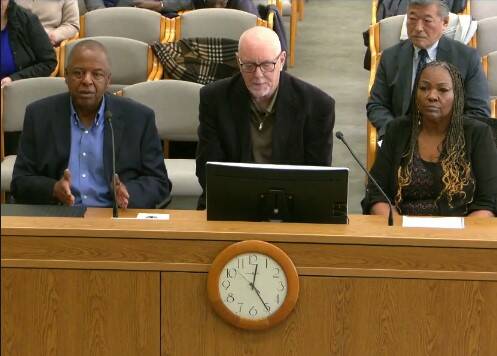Pierce County residents can help reduce roadway flooding by keeping storm drains free of leaves.
“The potential for roadway flooding increases if storm drains are clogged by leaves during rainy weather,” said Dennis Hanberg, Pierce County Planning and Public Works director. “Residents can help reduce roadway flooding by picking up yard waste and regularly checking storm drains near their property to make sure they are clear of leaves.”
Pierce County residents can take the following actions to keep storm drains clear:
Put leaves and other yard debris in yard waste bins for pick up. Find transfer stations where you can drop off yard waste at www.piercecountywa.gov/yardwaste.
If it can be done safely, remove leaves from storm drains with a rake.
For Pierce County roadways: If a blockage can’t be cleared, the roadway is flooding or a storm drain is on a busy road, call Pierce County Planning and Public Works at 253-798-6000 or submit a Request for Action at www.piercecountywa.gov/rfa.
Call 253-798-6000 to report flooding along a stream, river or pond in unincorporated Pierce County.
Residents in cities and towns should contact their local public works department to report flooding or storm drain problems.
Roadway flooding response
Significant rainstorms may cause roadside storm drains and ditches to overflow and flood the roadway. River flooding may also affect roads. As the rain saturates the ground, there is also an increased risk of downed trees and landslides.
Pierce County crews clear drainage systems, downed trees and landslides when possible, close roads or lanes if they are not passable, and clean drainage systems proactively to reduce flooding.
Motorists should not drive through standing water, near downed trees or utility lines, or around road closure barricades.
River flooding
Flooding is the most common disaster in the United States and Pierce County is not an exception. With four major rivers in the county, flooding is a possibility each winter. While Pierce County spends between $3-$4 million annually on maintenance to levees along those rivers, flooding is not limited to communities and areas next to rivers.
Coastal flooding
Coastal flooding also occurs in Pierce County. This type of flooding is caused either by wind-driven waves or a storm surge pushing water onto shore. Residents along the county’s coast should secure items that are outside to prevent them from being moved during flooding and damaging property or hurting people.
“People need to have a plan in case there is flooding around their home or where they work,” Hanberg said. “And, when there is a major storm, residents should monitor Pierce County’s website and media outlets for updates.”
Residents can prepare for flooding by learning the flood risk to their property. Pierce County can help with a free map of a property that explains flood risk. Also, flood insurance is available to all homeowners and renters in unincorporated Pierce County. Residents in unincorporated Pierce County receive a 40% discount on their flood insurance policies. Homeowners insurance does not cover losses from flooding.
To learn about flood risk to your property and preparing for flooding, go to www.piercecountywa.gov/flooding.
For information about Pierce County’s response to winter weather, visit www.piercecountywa.gov/winterwise.
– Planning and Public Works








